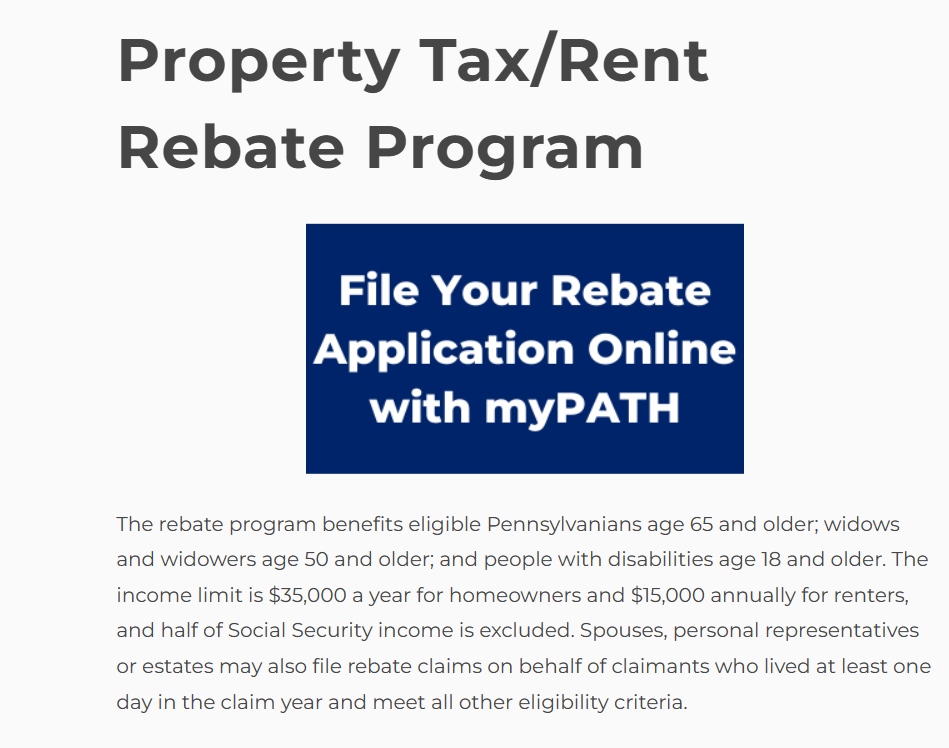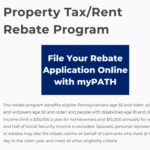Rent Rebate Check – Welcome to our comprehensive guide on the much-awaited Rent Rebate Check. If you’re a tenant struggling with the burden of high rent payments, this article is here to provide you with the information you need to understand and potentially benefit from this financial relief program. In this guide, we will delve into the details of the Rent Rebate Check, explaining its purpose, eligibility criteria, application process, and more. So, let’s get started and explore how you can unlock this valuable resource to ease your financial burden.
What is the Rent Rebate Check?
The Rent Rebate Check is a financial assistance program designed to provide relief to eligible tenants who are struggling to afford their rent payments. It aims to alleviate the financial stress faced by individuals and families with limited income. The program is usually administered by the government or relevant local authorities to ensure that those who qualify can receive the support they need to maintain stable housing.
The Rent Rebate Check serves as a form of financial aid, offering a partial refund or rebate on rental payments. This initiative acknowledges the challenges faced by tenants who dedicate a significant portion of their income towards housing expenses and seeks to bridge the gap between income and rental obligations.
Eligibility Criteria for the Rent Rebate Check
To ensure that the Rent Rebate Check is targeted towards individuals and families who genuinely require financial relief, specific eligibility criteria are put in place. While these criteria may vary depending on the jurisdiction, some common factors include income level, household size, and residency status.
To qualify for the Rent Rebate Check, applicants typically need to meet certain income thresholds, which are defined based on the local cost of living and average rental rates. Household size is also taken into account, as larger families may face greater financial strain due to increased rental expenses. Additionally, applicants are required to provide proof of residency, usually in the form of a lease agreement or utility bills.
How to Apply for the Rent Rebate Check
Applying for the Rent Rebate Check is a straightforward process, but it’s essential to gather all the necessary documentation and follow the prescribed guidelines to ensure a smooth application. Here are the general steps to apply for the Rent Rebate Check:
- Research and Gather Information: Begin by researching the Rent Rebate Check program specific to your location. Visit the official government website or contact the relevant authority to obtain detailed information about the program’s requirements and application process.
- Collect Required Documents: Compile all the necessary documents, such as proof of income, residency, and household size. This may include pay stubs, tax returns, identification documents, utility bills, and lease agreements.
- Complete the Application Form: Fill out the application form accurately and thoroughly. Ensure that you provide all the requested information and double-check for any errors or omissions. It’s crucial to be transparent and truthful throughout the application.
- Submit the Application: Submit your completed application form along with the supporting documents through the designated submission method outlined by the program. This could be via mail, online submission, or in-person at a government office.
The Benefits of the Rent Rebate Check
The Rent Rebate Check offers several benefits for eligible tenants in need of financial relief. Let’s explore some of the advantages this program provides:
- Financial Assistance: The primary benefit of the Rent Rebate Check is the direct financial aid it offers. By receiving a partial refund or rebate on rental payments, tenants can allocate those funds towards other essential expenses, such as food, healthcare, or education.
- Stability and Housing Security: With the assistance provided by the Rent Rebate Check, tenants can maintain stability in their housing situation. This reduces the risk of unforeseen eviction or homelessness, providing them with a sense of security and peace of mind.
- Reduced Financial Burden: High rent payments can place a significant strain on individuals and families, often leaving them with little to no disposable income for other essential needs. The Rent Rebate Check helps alleviate this burden by offering financial relief, allowing tenants to have more breathing room in their budgets and improve their overall financial well-being.
- Improved Quality of Life: By easing the financial pressure associated with rent payments, the Rent Rebate Check can enhance the quality of life for eligible recipients. With access to additional funds, individuals and families may be able to afford healthier food options, better healthcare, or educational opportunities for themselves or their children.
- Stimulating Local Economies: The Rent Rebate Check program can also have a positive impact on local economies. By providing financial relief to tenants, more disposable income is available to be spent on goods and services within the community. This increased consumer spending can boost local businesses and contribute to economic growth.
Frequently Asked Questions About the Rent Rebate Check
Q1: Can I apply for the Rent Rebate Check if I live in public housing or receive other forms of housing assistance? A: Eligibility for the Rent Rebate Check may vary depending on the specific program and jurisdiction. In some cases, individuals receiving other forms of housing assistance may still qualify, while in others, they may be excluded. It is important to review the eligibility criteria of the program in your area to determine if you are eligible.
Q2: How often can I receive the Rent Rebate Check? A: The frequency of the Rent Rebate Check disbursement can vary. Some programs offer it as a one-time payment, while others may provide it on a monthly, quarterly, or annual basis. The specific details regarding the frequency of disbursement will be outlined in the program guidelines.
Q3: What happens if my income or household size changes after receiving the Rent Rebate Check? A: It is essential to notify the program administrators of any significant changes in income or household size. These changes may affect your eligibility for future Rent Rebate Check payments or the amount you are eligible to receive. Failure to report changes promptly may result in penalties or repayment obligations.
Q4: Can I apply for the Rent Rebate Check if I am behind on my rent payments? A: Eligibility for the Rent Rebate Check is often based on income and household size rather than rental payment history. It is worth noting that the program aims to provide relief to individuals and families who are struggling to afford their rent. However, it is crucial to review the specific requirements of the program in your area to determine your eligibility.
Conclusion:
The Rent Rebate Check serves as a lifeline for individuals and families facing the challenges of high rent payments. By offering financial assistance and reducing the burden of housing costs, this program can significantly impact the lives of those in need. Through careful research, understanding eligibility criteria, and following the application process, eligible tenants can unlock the benefits of the Rent Rebate Check and gain the financial relief necessary to maintain stable housing and improve their overall well-being. If you find yourself struggling with rental expenses, we encourage you to explore the Rent Rebate Check program specific to your jurisdiction and take the necessary steps to apply. Remember, assistance is available, and the Rent Rebate Check could be the key to unlocking your financial relief.

